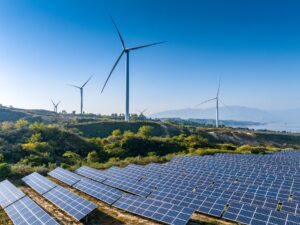Climate change is making air pollution worse in Korea
Researchers have found a link between hot and dry weather and air pollution in Korea.
Over the past few decades, East Asia has seen a marked decline in air quality, particularly in terms of ground-level ozone pollution.
In order to understand why this is the case, a team of scientists from the Gwangju Institute of Science and Technology looked a the relationship between large-scale weather patterns and ozone concentration.
To do this, they used weather data from 17 airport meteorological stations and hourly observations of ground-level ozone concentrations from 306 monitoring sites.
They found that ‘dry tropical’ weather was consistently associated with high ozone concentrations.
The researchers also found that this dry tropical weather has steadily become more frequent in Korea over the past 50 years, which is consistent with the gradual increase in tropospheric ozone levels.
Lead author Dr Hyun Cheol Kim from the National Oceanic and Atmospheric Administration said: ‘Understanding the relationship between synoptic weather patterns and surface ozone concentration will help us assess the contribution of meteorological conditions to regional air quality and establish an effective early warning system.
‘Let us hope this study brings more attention to the serious and interlinked issues of air pollution and climate change so that decisionmakers can act in time.’
Prof Yoon, co-author of the study added: ‘We estimate that tropospheric ozone concentration could increase by 3.5% if the frequency of dry tropical weather doubles, and by an alarming 7.5% if it triples.
‘Our results imply that future air quality regulations in Korea should be issued together with those related to global and regional warming.’
Photo Credit – Pixabay
















